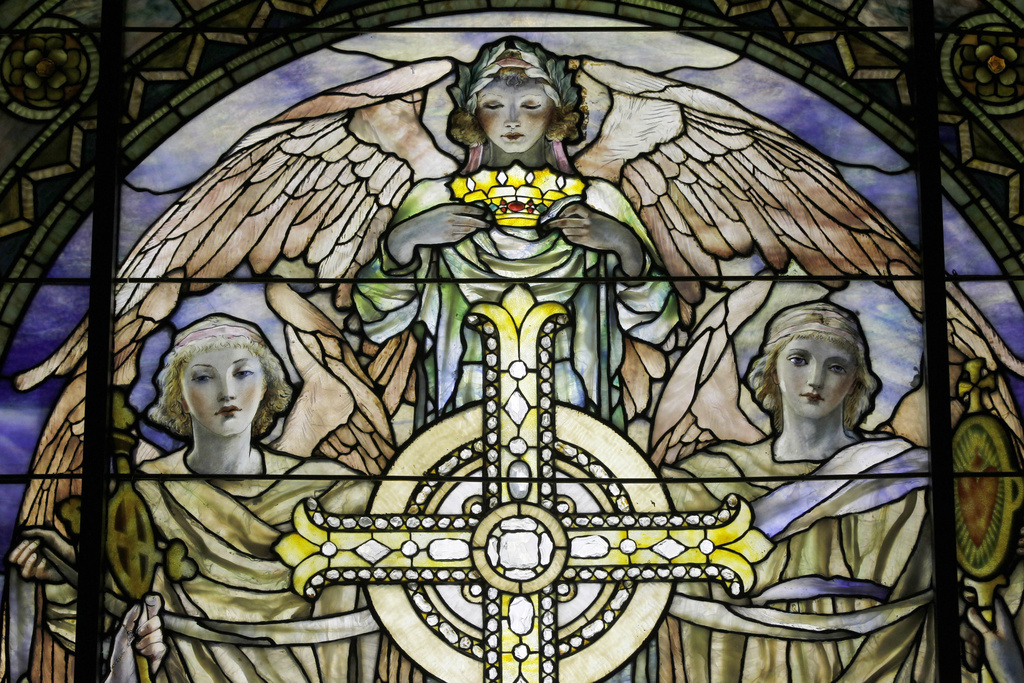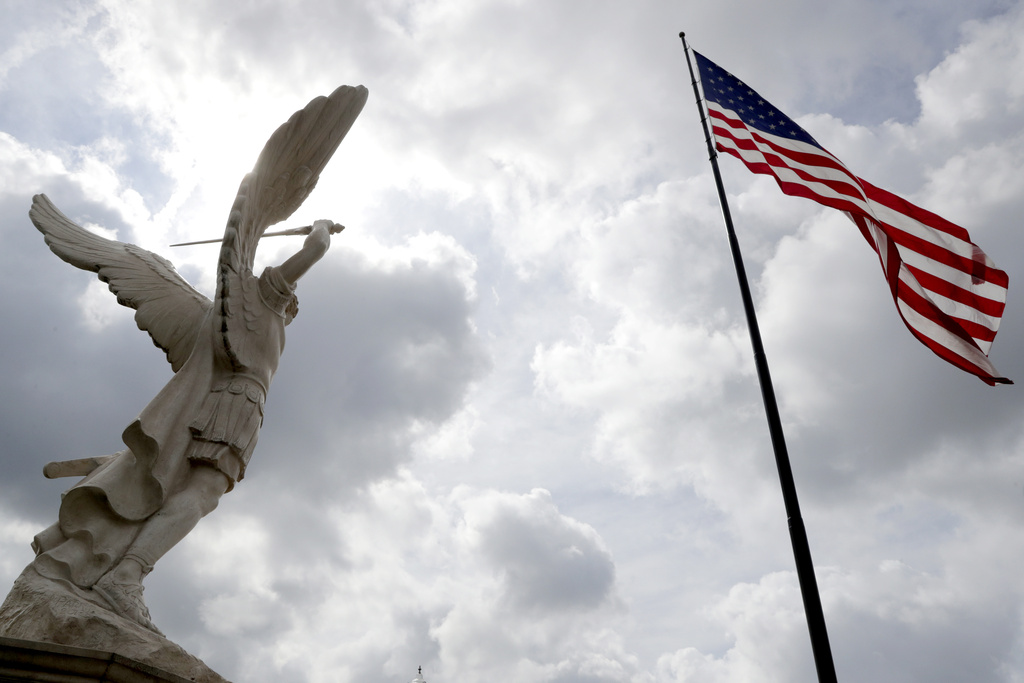Editor's note: This AP story is the result of a national secular survey. It is not presented in biblical parameters, but rather on what people perceive, giving us some idea of interest in the supernatural, although much of it does not line-up with what God has told us through the Bible. We have edited a bit of the original story as it contained an interview with a practicing witch and the name of a book that was not kind in its outlook of God.
Angels even get more credence than the devil. More than astrology, reincarnation, and the belief that physical things can have spiritual energies.
In fact, about 7-in-10 U.S. adults say they believe in angels, according to a new poll by The Associated Press-NORC Center for Public Affairs Research.
“People are yearning for something greater than themselves — beyond their own understanding,” said Jack Grogger, a chaplain for the Los Angeles Angels and a longtime Southern California fire captain who has aided many people in their gravest moments.
That search for something bigger, he said, can take on many forms, from following a religion to crafting a self-driven purpose to believing in, of course, angels.

“For a lot of people, angels are a lot safer to worship,” said Grogger, who also pastors a nondenominational church in Orange, California, and is a chaplain for the NHL's Anaheim Ducks.
People turn to angels for comfort, he said. They are familiar, regularly showing up in pop culture as well as in the Bible. Comparably, worshipping Jesus is far more involved; when Grogger preaches about angels it is with the context that they are part of God's kingdom.
American's belief in angels (69%) is about on par with belief in heaven and the power of prayer, but bested by belief in God or a higher power (79%). Fewer U.S. adults believe in the devil or Satan (56%), astrology (34%), reincarnation (34%), and that physical things can have spiritual energies, such as plants, rivers or crystals (42%).
The widespread acceptance of angels shown in the AP-NORC poll makes sense to Susan Garrett, an angel expert and New Testament professor at Louisville Presbyterian Theological Seminary in Kentucky. It tracks with historical surveys, she said, adding that the U.S. remains a faith-filled country even as more Americans reject organized religion.
But if the devil is in the details, so are people’s understandings of angels.
“They’re very malleable,” Garrett said of angels. “You can have any one of a number of quite different worldviews in terms of your understanding of how the cosmos is arranged, whether there’s spirit beings, whether there’s life after death, whether there’s a God … and still find a place for angels in that worldview.”
Talk of angels, Garrett said, is often also about something else, like the ways God interacts with the world and other hard-to-articulate ideas.
The large number of U.S. adults who say they believe in angels includes 84% of those with a religious affiliation — 94% of evangelical Protestants, 81% of mainline Protestants and 82% of Catholics — and 33% of those without one. And of those angel-believing religiously unaffiliated, that includes 2% of atheists, 25% of agnostics and 50% of those identified as “nothing in particular.”
Jennifer Goodwin of Oviedo, Florida, also is among the roughly seven in 10 U.S. adults who say they believe in angels. She isn’t sure if God exists and rejects the afterlife dichotomy of heaven and hell, but the recent deaths of her parents solidified her views on these celestial beings.
Goodwin believes her parents are still keeping an eye on the family — not in any physical way or as a supernatural apparition, but that they manifest in those moments when she feels a general sense of comfort.
“I think that they are around us, but it’s in a way that we can’t understand,” Goodwin said. “I don’t know what else to call it except an angel.”
Angels mean different things to different people, and the idea of loved ones becoming heavenly angels after death is neither an unusual belief nor a universally held one.
In his reading of Scripture as an evangelical Protestant, Grogger said he believes angels are something else entirely — they have never been human and are on another level in heaven's hierarchy. “We are higher than angels,” he said. “We do not become an angel.”
Angels do interact with humans though, said Grogger, but what "that looks like we’re not 100% sure.” They worship God who created this angelic legion of unknown numbers, he said, adding that evangelicals often attribute the demonic forces in the world to the angels who fell from heaven when the devil rebelled.
The Western ideas about angels can be traced through the Bible — and to the worldviews of its monotheistic authors, Garrett said. Those beliefs have changed and developed for millennia, influenced by cultures, theologians and even the ancient polytheistic beliefs that came before the Hebrew Bible and the New Testament, she said.
“There are sort of lines of continuity from the Bible that you can trace all the way up to the New Age movement,” said Susan Garrett, who wrote “No Ordinary Angel: Celestial Spirits and Christian Claims about Jesus.”
The perception that angels act angelic and look like the idyllic, winged figurines atop Christmas trees could be attributed to an early centuries belief that people are assigned one good angel and one bad — or have a good and bad spirit to guide them, Garrett said.
This idea shows up on the shoulders of cartoon characters and is likely what Abraham Lincoln was alluding to in his famous appeal for unity when he referenced “the better angels of our nature” in his first inaugural address, she said.
“It’s also tied in with ideas about guardian angels, which again, very ancient views that got developed over the centuries,” Garrett said.
For Sheila Avery of Chicago, angels are protectors, capable of keeping someone from harm. Avery, who belongs to a nondenominational church, credits them with those moments like when a person’s plans fall through, but ultimately it saves them from being in the thick of an unexpected disaster.
“They turn on the news and a terrible tragedy happened at that particular place,” Avery said, suggesting it was an “angel that was probably watching over them.”

___
Associated Press religion coverage receives support through the AP’s collaboration with The Conversation US, with funding from Lilly Endowment Inc. The AP is solely responsible for this content.
